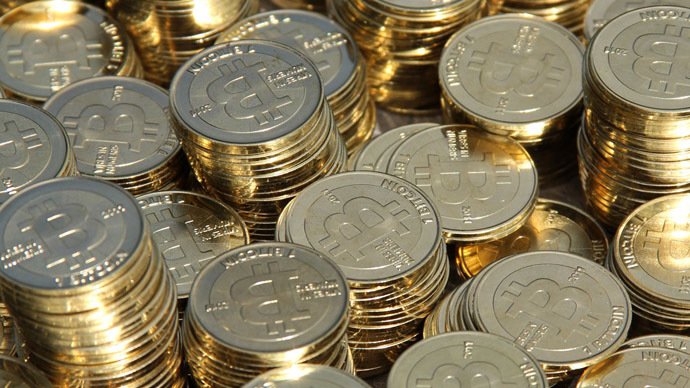The Year of Bitcoin

Like it or love it, bitcoin has been a constant theme of headlines for the past year, as 2013 marked its coming of age.
Last year’s nerd money fad has become this year’s most talked about product.
Ultimately, nature abhors a vacuum and with western political leadership an increasingly distant memory, citizens are becoming increasingly restive about the parlous state of financial governance. Throughout the West, the ravages of quantitative easing [QE] have helped the wealthiest prosper, while ordinary citizens have struggled through a grinding economic plight, which has left voters feeling increasingly abandoned by government.
Into this void has stepped something which had been mooted for many years: a popular electronic currency. Bitcoin is filling a gap self-interested central bankers are keen to suggest doesn’t need filling. Establishment media has been wrong-footed as the Copernican Revolution in finance creates not just bitcoin but a series of parallel financial universes where independent money is at the center of commerce, as opposed to government manipulated fiat currency.
Meanwhile, bitcoin may not be the cryptocurrency the world uses in a decade and the biannual obituaries may yet prove right! As 2013 concluded, BTC’s value had multiplied albeit off its highs after the Bank of China endeavored to close the door to the threat of a backdoor floatation of the renminbi.
In reality, BTC is still remarkably small - growing exponentially from about 142 million dollars to circa 8 billion by Christmas. In other words, the total value of bitcoin amounts to the annual GDP of the Bahamas. Clearly bitcoin isn’t economically significant, yet. However, it now has its first ATM and many have bought beers, lattes and even homes with BTC this past year.
Naturally bankers of all shades are scared of losing their monopolist grip on money, yet given the vast inefficiency of their decrepit systems, it is probably already too late. Decentralized money is an idea whose time has come. Bitcoin is the breakthrough currency creating a widespread consciousness that there is an alternative to holding greenbacks, or lugging a trunk full of gold around.

Perhaps the most surprising thing about bitcoin is, in essence, the banality of the arguments. When all else fails, skeptics just cry tulipmania. Indeed, bitcoin bubbled and almost halved in value before the year’s end, but then again, thanks to the idiocy of the banker-government nexus in the last decade, just about every asset bubbled then and a great deal are bubbling now, like art and classic cars, thanks to QE [quantitative easing].
Yes, people steal bitcoins and these thefts are techno-mythologized by scaremongering media. Yet stealing bitcoin is just a virtual variant of traditional pickpocketing. Indeed BTC has been used to finance crime, just like the dear old anonymous bearer bond dollar is beloved of drug cartels. Some American security agencies have expressed concern about their lack of control over bitcoin, but they had an annus horribilis, during which, despite their vast overarching eavesdropping capacity, they still failed to see their own currency woes coming.
While price inflation is the first thing everybody recalls about bitcoin in 2013, what really defines its incredible year was how it slipped out of nerds’ virtual wallets into the mainstream. An 8 billion dollar asset leveraged its value to dominate the headlines and gain widespread recognition. Germany legalized it and many nations acknowledged it - even the US courts. That Norway called it an asset was seen as a dreadful slight; rather it was a splendid incremental step to wider appreciation. In the end, China and Thailand pushed back against the bitcoin juggernaut. The latter is hardly of global economic significance, while the former maintains a closed currency regime.
The year of bitcoin began with the currency on the fringes of digital society, but by the end of the year it was clearly “merging with the mainstream”. Decentralized crytocurrency is still in its infancy but the argument against central bankers’ follies is being won across the globe. After all, you can’t ‘clip’ bitcoin to degrade its value, nor can you inflate its value with QE or other flawed government policies.
2013 ended with citizens increasingly alienated from government as a monetary ally and edging closer to “In Bitcoin we Trust”. Bitcoin itself may only be the first stage of a revolution, similar perhaps to the Netscape browser at the birth of the web, or the Ford Model T which popularized automobile transport. Ultimately, however you look at it, this was the year when bitcoin made its irrevocable mark on history.
The statements, views and opinions expressed in this column are solely those of the author and do not necessarily represent those of RT.
The statements, views and opinions expressed in this column are solely those of the author and do not necessarily represent those of RT.














